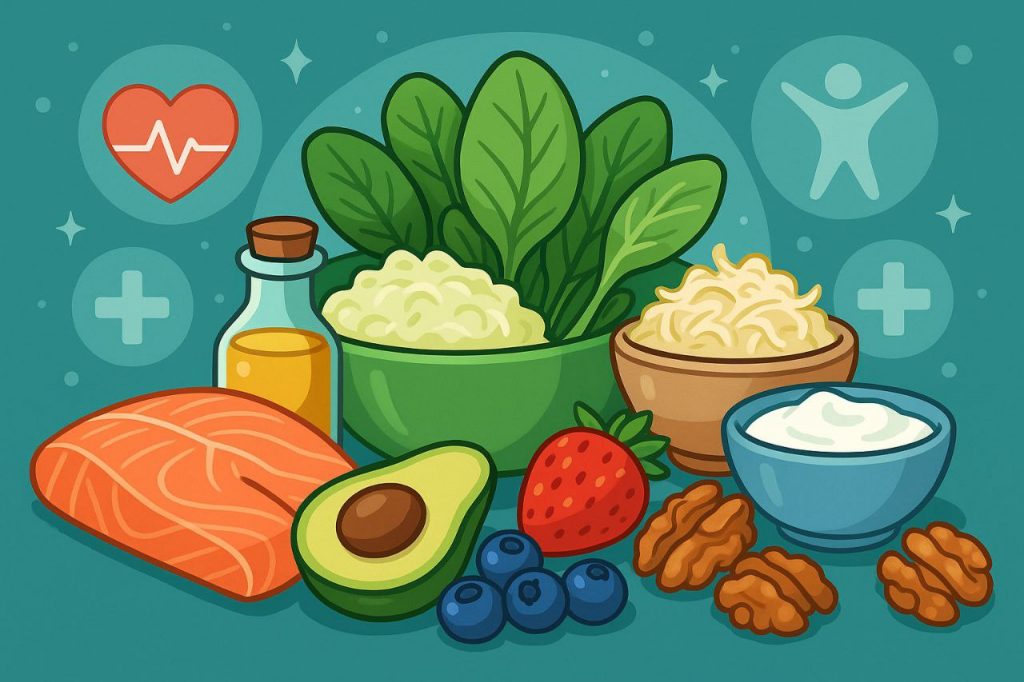Functional nutrition is an approach to eating that goes beyond simply providing the body with calories and basic nutrients. It focuses on foods that offer specific health benefits, aiming to improve physical and mental well-being, prevent chronic diseases, and support optimal body function. This concept is based on the understanding that diet can be a powerful tool for maintaining and restoring health.
1. The Principles of Functional Nutrition
Functional nutrition emphasizes:
- Personalized eating plans tailored to an individual’s health status and goals.
- Whole, minimally processed foods rich in bioactive compounds.
- Nutrient density over calorie counting.
- The role of food in preventing and managing chronic illnesses such as heart disease, diabetes, and inflammation-related conditions.
2. Examples of Functional Foods
Some foods are classified as functional foods because they contain health-promoting ingredients:
- Probiotic-rich foods (yogurt, kefir, sauerkraut) to support gut health.
- Omega-3 sources (salmon, flaxseeds, walnuts) for brain and heart function.
- Antioxidant-rich fruits and vegetables (blueberries, spinach, kale) to fight oxidative stress.
- Fortified foods (milk with added vitamin D, cereals with iron).
3. Health Benefits of Functional Nutrition
When applied correctly, functional nutrition can:
- Enhance immune system function.
- Improve digestion and nutrient absorption.
- Support mental health and cognitive function.
- Reduce inflammation and oxidative damage.
- Lower the risk of chronic diseases.
4. Practical Tips for Incorporating Functional Nutrition
- Build meals around fresh vegetables, fruits, and whole grains.
- Include healthy fats like olive oil and avocado.
- Consume fermented foods regularly.
- Choose foods with natural or added health-supporting nutrients.
Glossary
- Functional nutrition: An approach to eating focused on foods with specific health benefits.
- Bioactive compounds: Natural substances in foods that can positively affect health.
- Probiotics: Live beneficial bacteria that support gut health.
- Antioxidants: Molecules that protect cells from oxidative damage.


